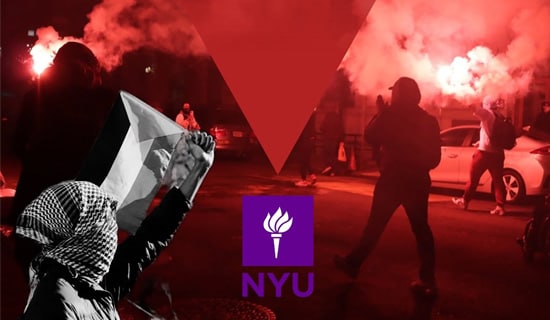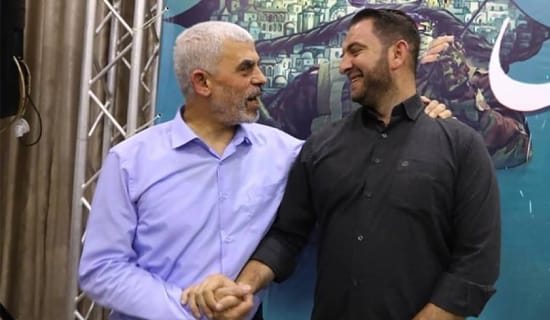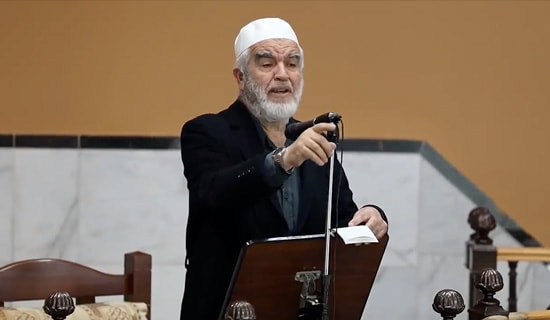The well-informed Kremlyovsky Bezbashennik Telegram channel predicts that the presidential administration is sponsoring two tame opposition parties: Alexei Nechaev’s “New People” and Boris Titov’s “Party of Growth” in an effort to reduce the number of seats held by the Russian Communisty Party after the September 19, 2020, legislative elections. [1]
The Kremlin's desire is understandable, considering that the Communists were the only party represented in the Duma that opposed the constitutional amendments that would enable Putin to run again for president after his fourth term expires in 2024.[2]
If Putin's team wants to cut the Communists down to size, they are going about it in precisely the wrong way argues social philosopher Aleksander Tsipko. Putin's propagandists tirelessly peddle the slogan "Russia Is not the West", that prioritizes Russia's great power status over economic growth and social equality. National euphoria can temporarily deafen people's ears to screams from the empty refrigerators, but the euphoria eventually evaporates. Russia's economic ills are being exploited by the Communists to whom "Middle Russia" is turning. The Communists are escalating their rhetoric against the Russian government including calls for revolution. The Communists – not the discredited Russian liberals – pose the greatest threat to a government that unwittingly enables its most dangerous adversary.
Tsipko's article follows below:[3]

Aleksander Tsipko (Source: Philologist.Livejournal.com)
"Now it’s becoming obvious, that it is difficult to foster the population'si>ove for the Motherland, when millions of people live from hand-to-mouth, and the rich are 'just getting fatter [richer]', as Russian comedian Maxim Galkin, who is probably dreaming of repeating the success of Ukrainian comedian [now President] Vlodomyr Zelensky, put it. Statehood cannot become a nationwide value, when the elite and the upper classes do not tie their fate with Russia, but send their children and their money to the presumably hostile West.
"My acquaintance, who is an electrician from the Moscow region and a Stalinist to the core, said in a heated polemic with me: 'So what, that Stalin killed those whom he considered his enemies. Isn’t it necessary now to kill the current chatterbox Duma deputies, who have both American and Swiss citizenship?!”
"The main lesson of what happened as a result of the 'Russian spring' of 2014 lies on the surface. No [Russian] great-power and no deep-seated sovereignty are possible amidst our traditional Russian poverty. The Great power image - the ability to terrify our neighbors, to ensure that “Russia is feared” left together with the 19th century. In the 21st century in the global world, being a great power entails, first of all, the happiness and prosperity of the majority of the population, and economic and technological power. You are a great power when your neighbors want to learn the most modern technologies from you, when the youth of neighboring countries wants to be educated, and to settle down in your country. And today, as we recently learned, not only the youth of Ukraine, but also the youth of Belarus has turned away from Russia.
SUPPORT OUR WORK

Russians Are Getting Tired Of Sacrificing For Great Power Status
"Now, that the euphoria about the correction of Khrushchev’s 'historic mistakes' [of handing Crimea to Ukraine] has already evaporated, it becomes clear that in fact we did not have great power status in the 19th century, let alone in Soviet times. In 1917, it was the so-called 'Great Russian separatism' that destroyed the Russian Empire. And in 1991, the Soviet empire was destroyed by the 'RSFSR [Russian Socialist Federal Republic]’s sovereignty', by the desire 'to stop feeding [providing for] the Baltic states, the Caucasus and Ukraine.' There was no national idea behind [Boris] Yeltsin’s coup d’état in 1991. Millions of citizens of the RSFSR followed Yeltsin, because he promised them first of all to deal with empty shelves in stores.
"I believe, that Russians got tired of imperialism and great power status the most. Nostalgia for the lost state sovereignty was born during the hard times, in the 1990s, and hence the popularity of Putin, who decided to 'raise Russia from its knees.' And today state television, with all its numerous propagandists, are making desperate attempts to preserve the mobilization of militaristic sentiments born during the 'Russian spring' of 2014, and to revive the hostile attitude towards the West, which 'does not respect us.' But it’s all for naught.
"It's all for nothing. The Russians’ consciousness is weary of the psychosis of aggression, of the never-ending search for the country’s enemies. As soon as the pension reform, carried out by the authorities, hit the vital interests of Russians, they [the authorities] heard the 'screams' of an empty refrigerator, and nothing remained of the delight caused by the victories of the 'green men' [Annexation of Crimea by the Russian Federation]. And now the people are most afraid of new Russian wars and above all dream, as in Soviet times, 'let there be no war'. Back in the late 1990s, during the creation of the Fatherland party, and then - the United Russia party [The Fatherland – All Russia party was created in 1998, and then in 2001 it was transformed into the United Russia party], it seemed that the replacement of the “highbrow liberals” in the Duma with the representatives of the Russian provinces would eliminate the centrifugal sentiments, which were distinctive of that time. Now we have to part with these illusions.
"The Kremlin ideologues failed to consider that the slogan 'Russia is not the West' not only restores us to the Cold War times, but also leads to Stalinism's rehabilitation and to the annulment of the moral assessment of Soviet history. The transformation of the country into a 'besieged fortress' actually put an end to the de-communization and de-Stalinization of the country that had begun during the Perestroika era. Thus, 'Russia is not the West' not only creates a fertile ground for the Communist Party's propaganda activities, but also leads to the moral degradation of national consciousness. In Soviet times, at least during the Khrushchev era (as I remember it) the value of human life was predominant in people's minds, much more than now.
"In this regard, I would hazard a risk and express a mutinous thought: everything suggests that if we do not change our foreign policy caused by the 'Crimean spring' of 2014, do not renounce total confrontation with the West, then the fate of the USSR awaits us. In my opinion, it was obvious that sooner or later the inevitable decline in living standards, the inevitable increase of poverty of the population, would lead not only to a loss of confidence in the government, but also will create unique conditions for anti-government pro-Communist and pro-Soviet agitation. If 'Russia is not the West', if liberalism is our sworn enemy, if, as Patriarch Kirill says, 'the 1990s were troubled years,' then Putin's legitimacy and power are undermined. And it is no coincidence that [Communist leader Gennady] Zyuganov began to say that the Russian tragedy is that Putin is [locked] in a 'tight ring of Yeltsin liberals' who are allegedly 'engaged in destabilizing the political situation in Russia.” In all of Zyuganov’s current criticism of the Americans and the CIA, there is a hint to the ideas voiced by [former intelligence officer] Colonel [Vladimir] Kvachkov (the hero of the assassination attempt [on the economic liberal deputy prime minister Anatoly] Chubais. The point is that for these critics of the authorities, Putin too is a representative of the 'occupation regime'. And the more the current seemingly pro-government propaganda sows seeds of hatred towards the West, the more, in my opinion, it will undermine the current government's ideological, legal and moral footholds.
"Yes, the 'Russian spring' of 2014 contributed to the strengthening of the unity of the population, [to the unity of] the 'deep-rooted Russian people' with the government, and to the growth of Putin’s popularity. It also helped Russians forget about blatant inequality and to stop hearing the 'voice' of an empty refrigerator. But it was obvious that the euphoria of the 'Russian spring', like any euphoria, was not going to last for long."
The Liberals Are Discredited, The Communists Are The Real Danger
"And amid the growing discontent of the population with a decline of living standards, real conditions arise not only for the Communist Party’s growth in popularity as the enemy of economic reforms and 'oligarchic capitalism', but also, in my opinion, for its seizing the 'summit' of Russian power.
"Politically speaking, the situation changed dramatically in the summer of 2020. Our Westernizers-liberals lost all chances for power back in the 1990s. The 'deep-rooted Russian people' neither hears nor listens to them. And this is due to the fact that the liberal intelligentsia represents some other, different Russia, in no way connected with the 'deep-rooted Russian people'. By the way, our 1990s reforms failed precisely because of this gap between Western liberals and the 'deep-rooted Russian people'.
"But the truth is that the 'deep-rooted Russian people' turned in the direction of Communist Party agitators and started to listen to them. And I think that it was not by chance, that in recent months the Duma deputies from the Communist Party began sharply criticizing the current allegedly 'anti-people government'. Communist orators deliberately target the sore points of Russian poverty and Russian backwardness. They draw attention to the fact that in our country 70% of the national wealth is in the hands of 1% of the population, and that Russia has the lowest minimum wage in Europe. Now leader of the Communist Party's Moscow organization, Deputy Rashkin, allows himself to say something that Gennady Zyuganov does not speak openly about, namely: that the authorities are not coping with their tasks, that they have discredited themselves.
"And most importantly, something that was impossible even during the 'merry 90s' is happening: the emboldened Communist Samara Duma deputy from, N. Bondarenko, is using the language of the streets: 'The rotten government is faltering. When you leave, they will spit in your face. We will arrange a revolution for you.' Previously, Communist Party deputies did not allow themselves such tough populism and hate propaganda towards the authorities. And the most serious thing is that it is this tough populism, the so-called courage of politicians from the Communist Party, that brings them popularity among the opponents of the current government.
"So what follows from all the above? The more stubbornly our government insists that 'Russia is not the West', and pursues a foreign policy that leads to increased poverty and economic inequality in Russia, the greater the prospects of success for those who see our happy future in the Stalinist past."
[1] T.me/kremlebezBashennik/16175
[2] See MEMRI Special Dispatch No. 8821, Russian Communist Leader Zyuganov: Putin Has More Power Than The Tsar, The Pharaoh, And The Secretary General Of The Communist Party Of The Soviet Union, June 26, 2020.
[3] Mk.ru, August 30, 2020.




